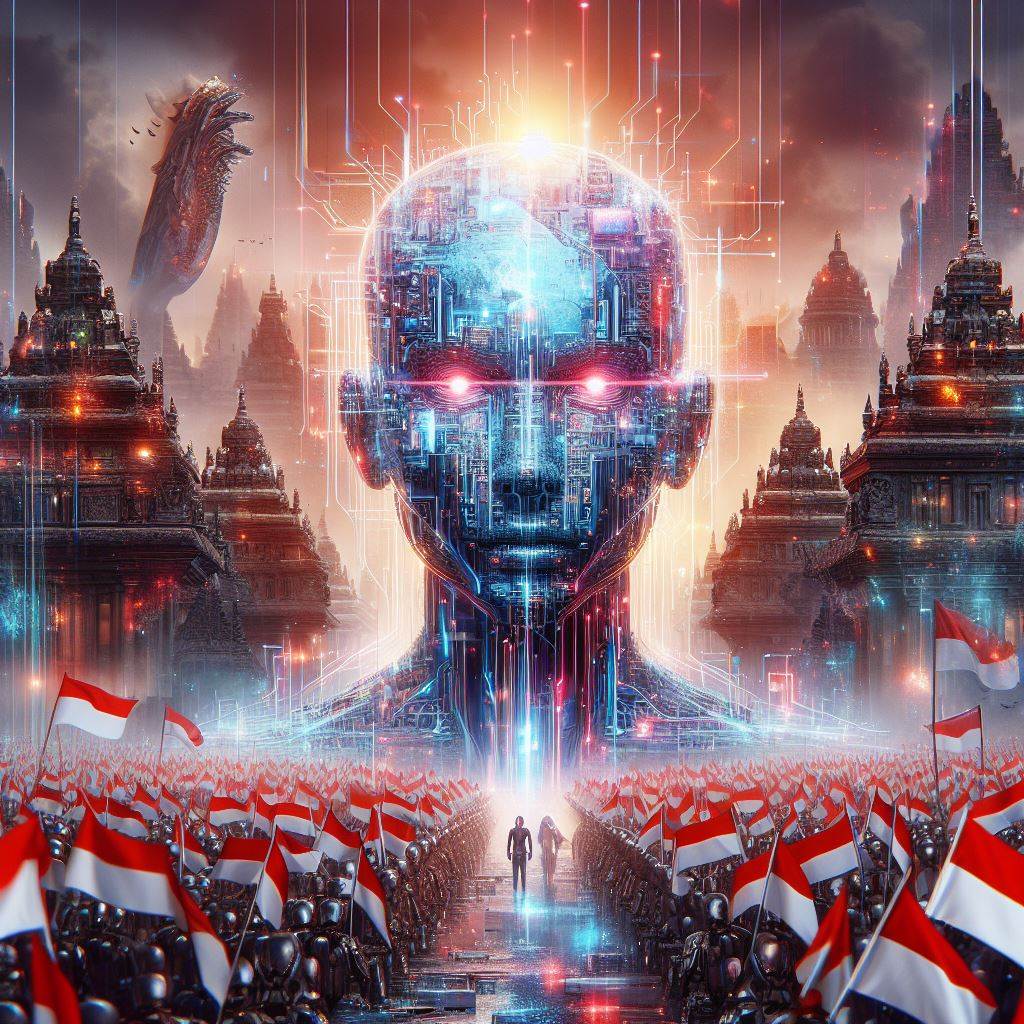
In the bustling streets of East Jakarta, 19-year-old shopkeeper Fika Juliana Putri shares her plans to cast her vote in Indonesia's upcoming presidential election. Her choice? A once-feared former special forces commander whom she finds endearing and "gemoy" – Indonesian slang for cute and cuddly.
The commander in question is General Prabowo Subianto, Indonesia's defense minister and a prominent candidate in the presidential race. But Prabowo's rebranding for this election campaign extends beyond his military background. His persona has been transformed into a cartoonish, chubby-cheeked figure, thanks to generative artificial intelligence (AI).
Across Indonesia, billboards featuring Prabowo's AI-generated avatar adorn the landscape, while merchandise like sweatshirts and stickers featuring his cartoon likeness fly off the shelves. Dubbed "gemoy" by his supporters, Prabowo's AI avatar engages in playful antics like making Korean-style finger hearts and cuddling his cat Bobby, resonating particularly well with young voters, who make up a significant portion of Indonesia's electorate.
The integration of generative AI into Indonesia's political landscape is a testament to the evolving nature of election campaigning. This technological innovation allows candidates like Prabowo to engage with voters on social media platforms like TikTok, where his content has amassed billions of views. As the world's third-largest democracy, Indonesia's presidential election serves as a harbinger of how generative AI could reshape political messaging on a large scale.
While Prabowo's campaign has capitalized on generative AI to revamp his image, he's not alone in harnessing this technology. Sarvam AI, an Indian startup, has partnered with Microsoft to develop voice-based generative AI applications, indicating a broader trend of AI adoption in political campaigns worldwide.
However, the use of AI in elections is not without controversy. OpenAI, a leading provider of generative AI technology, recently updated its policies to prohibit the use of its tools for political campaigning. Yet, political consultants in Indonesia have pushed the boundaries, employing AI-generated content to craft hyper-local campaign strategies and target specific voter demographics.
As Indonesia braces for its presidential election, the intersection of AI and politics raises questions about transparency, regulation, and the ethical implications of AI-driven campaign tactics. While some view generative AI as a tool for democratizing campaign strategies, others caution against its potential misuse and manipulation of public sentiment.
The outcome of Indonesia's election will undoubtedly shape the future of AI in politics, serving as a litmus test for the ethical boundaries and regulatory frameworks governing its use in democratic processes. As political campaigns worldwide embrace AI-driven technologies, the need for responsible AI governance becomes increasingly paramount in safeguarding the integrity of electoral processes.